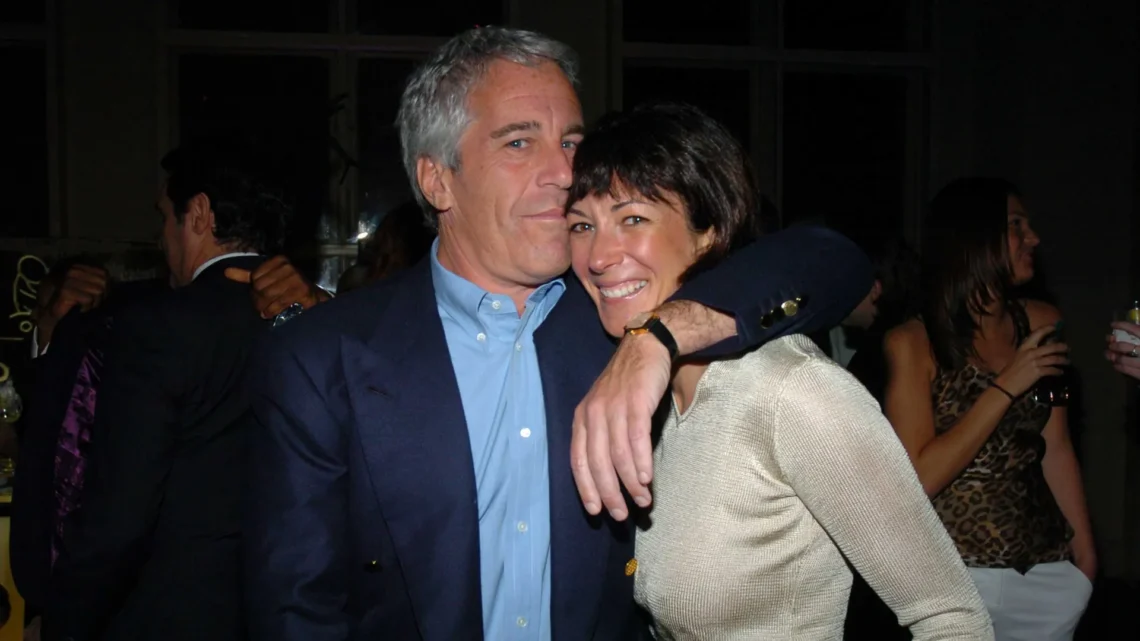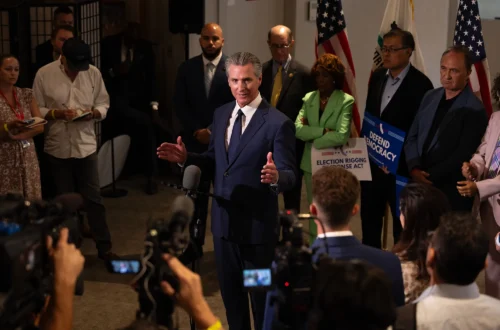The story of Jeffrey Epstein and Ghislaine Maxwell is one that has gripped the public’s imagination for years, blending wealth, power, and dark secrets. Among the many controversies surrounding Epstein’s crimes, one question persists: does a so-called “client list” of high-profile individuals exist? In a July 2025 interview with the U.S. Department of Justice, Maxwell, Epstein’s convicted accomplice, firmly stated that no such list exists. This claim has reignited debates, fueled conspiracy theories, and left many wondering what to believe. Let’s dive into this complex saga, separating fact from fiction with a clear-eyed look at the evidence, the players, and the implications.
Who Are Ghislaine Maxwell and Jeffrey Epstein?
Ghislaine Maxwell, a British socialite, and Jeffrey Epstein, a wealthy financier, were once fixtures in elite social circles. Their relationship, which began in the 1990s, evolved from romantic to professional, with Maxwell allegedly playing a key role in Epstein’s sex trafficking operation. Epstein died by suicide in 2019 while awaiting trial, leaving Maxwell as the primary living figure tied to his crimes. In 2021, she was convicted of sex trafficking minors and sentenced to 20 years in prison.
The Epstein case is a labyrinth of allegations, lawsuits, and public fascination. At its core, it’s about the exploitation of vulnerable young women, enabled by wealth and connections. The idea of a “client list” has become a lightning rod for speculation, with many believing it holds the names of powerful figures who participated in or benefited from Epstein’s crimes.
The Infamous “Client List”: What Maxwell Said
In a two-day interview in July 2025, conducted by Deputy Attorney General Todd Blanche, Maxwell was unequivocal: “There is no list that I am aware of.” She dismissed the notion of a “black book” or client list as a fabrication, suggesting that the idea stemmed from a 2009 civil lawsuit involving a lawyer who claimed to possess evidence from Epstein’s former butler. Maxwell’s statements align with a 2025 Department of Justice memo, which concluded that no incriminating client list exists and that no further charges would be pursued against third parties.
This assertion has sparked both relief and skepticism. For some, it closes a chapter on a persistent rumor. For others, it raises questions about transparency and accountability, especially given Maxwell’s history of perjury charges (later dropped) and her ongoing appeal for a pardon from President Donald Trump.
Why the Client List Myth Persists
The idea of an Epstein client list has taken on a life of its own, fueled by a mix of truth, speculation, and distrust. Here’s why it refuses to die:
- High-Profile Connections: Epstein’s social circle included politicians, celebrities, and business moguls, from Bill Clinton to Prince Andrew. This has led to speculation that a list of “clients” could implicate powerful figures.
- Conspiracy Theories: Social media platforms, including X, have amplified claims of a “deep state” cover-up, with some users suggesting the list is being suppressed to protect elites.
- Lack of Transparency: The Trump administration’s initial promise to release Epstein files, followed by a reversal, has fueled distrust. A 2025 memo stating no list exists didn’t satisfy everyone, especially after years of anticipation.
- Maxwell’s Credibility: As a convicted sex trafficker, Maxwell’s denials are met with skepticism. Victims’ advocates, like attorney Brittany Henderson, argue her testimony should carry little weight given her history of lying under oath.
The absence of a list doesn’t mean Epstein operated alone, but it does challenge the narrative of a neatly compiled dossier waiting to be uncovered.
The Evidence: What We Know
The Epstein case has produced mountains of documents, testimonies, and media reports, but no definitive client list has surfaced. Here’s a breakdown of the key evidence:
| Source | Details | Relevance to Client List |
|---|---|---|
| Maxwell’s 2025 DOJ Interview | Maxwell denied the existence of a client list, stating she never saw Epstein blackmail anyone or maintain such a record. | Directly contradicts the list’s existence but is questioned due to Maxwell’s credibility. |
| DOJ Memo (July 2025) | Stated no “incriminating client list” was found after a systematic review. | Official confirmation but criticized for lack of transparency. |
| Unsealed Court Documents (2024) | Mentioned names like Trump, Clinton, and Prince Andrew, but no list of clients was included. Most references were incidental, not incriminating. | Suggests no formal list exists in public records. |
| Epstein’s “Black Book” | A contact book with names of associates was made public, but it’s not a client list tied to crimes. | Often confused with a client list, adding to speculation. |
The lack of a list doesn’t absolve Epstein’s associates, but it shifts the focus to individual allegations and lawsuits, many of which remain unresolved.
The Role of Conspiracy Theories
Conspiracy theories about Epstein’s client list thrive in an environment of distrust. Posts on X have speculated about Maxwell’s safety, with some users joking darkly that she might “commit suicide” like Epstein if she reveals too much. Others claim the list is hidden by a “deep state” to protect powerful figures, a narrative echoed by some in Trump’s administration, like FBI Director Kash Patel, before they backtracked.
These theories are compelling because they tap into a broader unease: the idea that wealth and power shield the guilty. Yet, as Maxwell herself noted, “If they were worried about blackmail, [Epstein] would’ve been a very easy target.” The absence of concrete evidence for a list suggests that the truth may be messier than a single document.
Maxwell’s Denials: Can We Trust Her?
Maxwell’s claim that no client list exists must be viewed through the lens of her legal troubles. She’s serving a 20-year sentence, has been accused of lying under oath, and is openly seeking a pardon from Trump. Her attorney, David Markus, insists she’s telling the truth, arguing that her statements could be corroborated or disproven. However, victims’ advocates like Annie Farmer, a key witness in Maxwell’s trial, argue that her history of manipulation makes her an unreliable narrator.
Maxwell’s denials extend beyond the client list. She claims she never witnessed inappropriate behavior by high-profile figures like Trump or Clinton and denies recruiting underage girls, despite her conviction. This contradiction fuels skepticism, as her trial included testimony from four women who said Maxwell groomed them for Epstein’s abuse.
The Pardon Angle
Maxwell’s mention of a potential pardon from Trump adds a layer of intrigue. In her interview, she praised Trump as “a gentleman in all respects,” raising eyebrows given his past association with Epstein. Critics argue she’s currying favor, while her supporters see it as a bid for justice in a case they claim was mishandled. The White House has denied any leniency discussions, but the timing of her prison transfer to a less-restrictive facility in Texas has sparked speculation.
The Victims’ Perspective
The Epstein case is, at its heart, about the victims. Women like Virginia Giuffre, who died by suicide in 2025, and Annie Farmer have spoken out about the trauma inflicted by Epstein and Maxwell. Giuffre’s family called Maxwell “a predator who thought only of herself,” accusing her of lying to protect her position. Farmer, meanwhile, has expressed frustration at the politicization of the case, feeling that victims are being overshadowed by sensationalism.
The absence of a client list doesn’t erase the harm done. Victims’ lawsuits and testimonies point to a network of enablers, even if no single document ties it all together. The focus on a list can distract from the broader issue: ensuring justice for those who suffered.
Comparing the Narrative: List vs. No List
| Aspect | List Exists | No List Exists |
|---|---|---|
| Evidence | Anecdotal claims, unverified documents like Epstein’s contact book. | Maxwell’s testimony, DOJ memo, lack of court evidence. |
| Implications | Could implicate high-profile figures, fueling calls for transparency. | Shifts focus to individual allegations, not a collective conspiracy. |
| Public Reaction | Fuels conspiracy theories and distrust in institutions. | Frustrates those seeking closure but aligns with official findings. |
| Legal Impact | Could lead to new investigations if found. | Limits further prosecutions unless new evidence emerges. |
Pros of Believing No List Exists
- Aligns with official DOJ findings and Maxwell’s statements.
- Reduces speculation and conspiracy-driven narratives.
- Focuses attention on proven crimes and victim support.
Cons of Believing No List Exists
- Raises questions about transparency and cover-ups.
- May leave victims feeling justice is incomplete.
- Doesn’t address Epstein’s broader network of enablers.
People Also Ask (PAA)
What did Ghislaine Maxwell say about the Epstein client list?
Maxwell told the DOJ in July 2025 that no client list exists, denying knowledge of any “black book” or record of Epstein’s clients. She suggested the idea originated from a 2009 lawsuit involving a lawyer’s claims.
Why is the Epstein client list so controversial?
The client list is controversial because Epstein’s connections to powerful figures like Trump, Clinton, and Prince Andrew have fueled speculation about their involvement. The lack of concrete evidence and conflicting statements from officials amplify distrust.
Did Jeffrey Epstein really die by suicide?
Officially, Epstein died by suicide in 2019 while awaiting trial. Maxwell expressed skepticism, citing prison mismanagement, but offered no evidence of foul play. Conspiracy theories persist, but no definitive proof contradicts the official report.
What happened to Ghislaine Maxwell after her conviction?
Maxwell was sentenced to 20 years in 2021 for sex trafficking. In 2025, she was moved to a minimum-security prison in Texas after her DOJ interview. She’s appealing her conviction and seeking a pardon.
The Bigger Picture: Transparency and Accountability
The Epstein case exposes deep flaws in how society handles crimes enabled by wealth and power. The client list, whether real or not, symbolizes a demand for accountability. Maxwell’s denials and the DOJ’s memo may close one avenue of inquiry, but they don’t resolve the broader questions about who knew what and when. The House Oversight Committee’s 2025 subpoena for Epstein files reflects ongoing pressure for answers, even as political divisions complicate the process.
For victims, the focus on a list can feel like a distraction from their lived experiences. As Annie Farmer noted, the case’s politicization risks overshadowing the human toll. Moving forward, the challenge is balancing transparency with respect for survivors, ensuring their voices aren’t lost in the noise.
How to Stay Informed
For those seeking to understand the Epstein case, here are actionable steps:
- Follow Reputable Sources: Stick to outlets like BBC, Reuters, or The Guardian for updates on court documents and official statements.
- Check Primary Documents: Court filings and DOJ releases, available on sites like justice.gov, provide unfiltered information.
- Engage with Victim Advocacy: Organizations like the National Center for Victims of Crime offer resources and support for understanding trafficking cases.
- Avoid Unverified Claims: Be wary of social media posts or unverified reports, especially on platforms like X, where speculation can outpace facts.
FAQ
Is there any proof of an Epstein client list?
No definitive proof of a client list has emerged. Maxwell’s 2025 DOJ interview and a DOJ memo both state no such list exists.
Why was Maxwell interviewed by the DOJ in 2025?
The DOJ interviewed Maxwell to address public pressure for transparency about Epstein’s associates. The interview, conducted by Todd Blanche, aimed to clarify rumors about a client list.
Can Maxwell’s testimony be trusted?
Maxwell’s credibility is questioned due to her conviction and past perjury charges. Victims’ advocates argue her statements serve her self-interest, especially as she seeks a pardon.
What’s next for the Epstein case?
With no client list and no further charges planned, the focus is on Maxwell’s appeal, ongoing lawsuits, and congressional efforts to release more files.
How can I support Epstein’s victims?
Support organizations like RAINN or the National Center for Victims of Crime, which provide resources for trafficking survivors. Raising awareness and advocating for transparency also helps.
Final Thoughts
The Epstein client list is less a document and more a symbol—a shorthand for the public’s demand for justice in a case shrouded in mystery. Ghislaine Maxwell’s claim that it doesn’t exist aligns with official findings but does little to quell skepticism. As we navigate this story, let’s keep the focus on the victims, whose courage in speaking out drives the push for truth. Whether or not a list ever surfaces, the Epstein case reminds us that power doesn’t excuse accountability, and survivors deserve to be heard.





